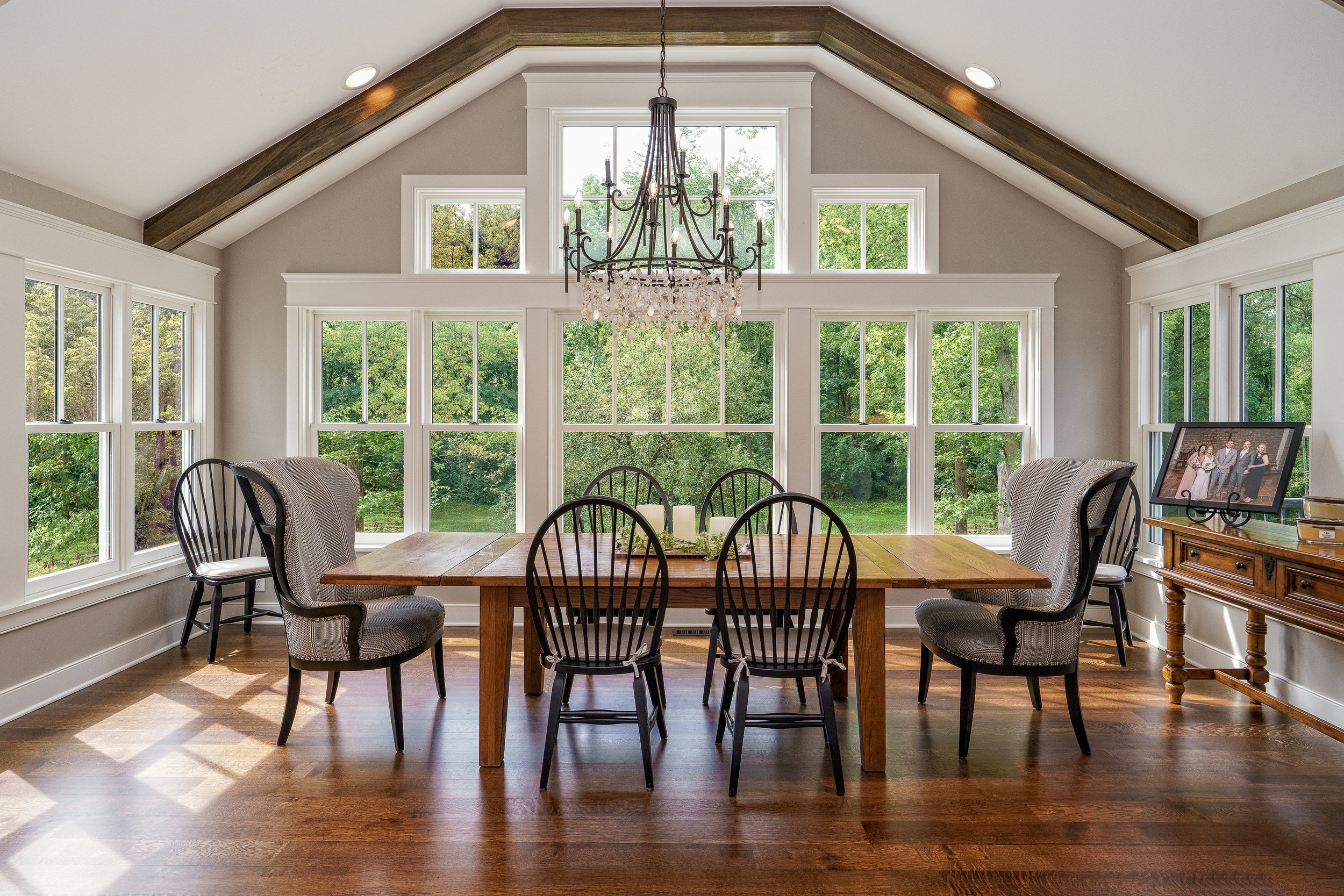Lighting—How We Can Make it Work For Us!
unsplash-image-_GD5e29Vb-U.jpg
The impact of light becomes increasingly important as the days get shorter. Knowing how to integrate it can make a substantial difference to our health and well-being. Especially in the winter, we crave light, both from the sun and in our homes and businesses. Light does impact how we feel.
Four types of lighting
Decorative—The purpose of this lighting is to create character or a design element to a room. Whether it is hanging, sitting on a table, or a floor lamp, it’s purpose is to be something your eye is drawn to.
Ambient—This lighting provides general brightness in a room. Typically, these are recessed can lights, or ceiling fixtures and chandeliers.
Task—Used along with ambient lighting, task lighting allows you to see better in certain areas. Under cabinet lights, lighting along stairways, or any place you need increased lighting.
Accent—Flood lights, track lights, and sconces are three good examples of lighting used for focus or to feature a part of a room or area.
Create more natural light in your home
If possible, design a home with bedroom windows not facing strong outside lights. If you don’t have that ability, get light-blocking curtains or blinds to use when sleeping.
Choose homes with big windows on all sides to allow natural light in during the day.
Remove or trim bushes away from windows.
In rooms with little natural light, hang mirrors across from the windows to reflect light back into the room.
Use multiple types of lighting to add brightness.
Use light paint colors in small dark rooms.
Don’t block the windows with furniture.
Keep your windows clean!
Choose lightbulbs that work in each room. Daylight, Soft White, and Warm White are the three types of color temperatures available, as well as decorative colors. Choosing the right color temperature depends on what color temperature you need. Bedrooms tend to benefit from daylight or cool (soft) bulbs and kitchens benefit from all three, depending on the natural light available. Bulbs are available with many wattages and styles, so understanding what you need will involve some sleuthing on your part.
Circadian Lighting
What is it?
Circadian lighting is a newer technology that can impact our health and circadian rhythm. Circadian rhythms are the mental, physical, and behavioral changes that follow the 24-hour cycle. Think-sleeping at night and awake during the day. And using a computer or phone late in the evening is one thing that can disrupt our rhythms.
Exposure to daylight is important for our health. We react to the blue wavelengths from the sun, which change in intensity during the day. Blue wavelengths suppress melatonin, which is the hormone causing sleepiness.
Using the technology of circadian lighting, we can recreate the amount of brightness during the day in our homes with adjustable LED Smart bulbs. In essence, we mimic the daily progression of the sun. In dark, grey winter days, this is especially an interesting idea. But this is not a replacement for exposure to natural light, just a tool to help us.
Photo courtesy of https://www.thelightingpractice.com/what-is-circadian-lighting/
Is it worth the money?
It can be effective and deliver the right amount of light every day if it is installed correctly and calibrated and programmed for the area where you live.
If you live or work in darker spaces with little natural light, it can help keep the mind and body alert, making your workday more productive.
Because it is programmable, once it is set up you don’t need to think about it or adjust it. But getting it set up is a bit of a challenging experience as you need to use on online calculator to find the right intensity and spectrum of light throughout the day.
Since it works by controlling spectrum, intensity, and timing, it is an expensive system. (Just using dimmable bulbs won’t achieve the same result.)
While it is a known product, finding a reputable manufacturer will take some research.
Smart bulbs are expensive and may add more blue light than is needed. Again, research is important.
Lighting is a complex endeavor and requires some time and energy to understand how to light your home effectively. It might take some trial and error on your part to make it work for your needs. Our designers here at RDS are well-versed in understanding how to help you create and maximize natural lights as well as helping your find the right types of lighting for each room in your home. And if Circadian Lighting is intriguing, we are here to help!




